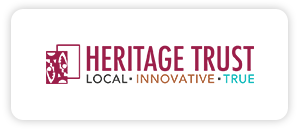14 questions to ask before issuing equity to employees
Source: David G. Bates, Contributing Writer, Gunster
After representing entrepreneurs for more than 20 years, I remain dismayed at both how quickly and how often they issue equity ownership of their business to co-founders, employees, strategic partners, consultants, and vendors.
Overeager entrepreneurs too often use equity as currency without considering the legal and tax consequences, without written agreements specifying defined vesting schedules and ownership restrictions, and without considering the long-term consequences. Unfortunately, such promises are frequently a costly and irrevocable mistake.
Recently, I met with a prospective client that issued 30 percent of his company’s ownership to his co-founder, 5 percent ownership to the subcontractor currently creating the company’s website, and 5 percent ownership to the subcontractor that would write their business plan. This prospective client was very happy the decisions he made regarding his equity until I started to ask him the following questions:
- Did you issue the equity ownership pursuant to written agreements or only verbal agreements?
- These numbers seem well-rounded and uniform. How did you determine these percentages and did you sufficiently evaluate the amount of equity ownership issued?
- If the subcontractors do not complete the website and the business plan, do the subcontractors still retain their ownership in your company?
- If your co-founder makes smaller contributions to the company than you anticipate, does he still retain 30 percent of your company?
- If your co-founder leaves your company for another opportunity or becomes permanently disabled and cannot contribute to your company, does he still retain his ownership in your company?
- If your co-founder is hit by the proverbial bus, will his heirs inherit ownership of your company?
- If the subcontractors or your co-founder start a competing business or disclose your company’s trade secrets to a competitor, do they still retain ownership in your company?
- If your co-founder’s spouse files for divorce, will the ex-spouse own a portion of your company?
- How did you value your company to determine the tax consequences to your company, your co-founder and the subcontractors when they received ownership your company? Was this valuation sufficiently independent?
- When the ownership was issued to the subcontractors, did the company file the required 1099 with the IRS?
- Will the percentage of your company owned by your co-founder and the subcontractors decrease if additional equity ownership is issued to subsequent employees, subcontractors or investors?
- Was the equity issued in compliance with federal and state securities laws?
- Did the company’s Board of Directors formally approve the issuance of the securities?
- What are your plans regarding the issuance of equity to future employees, subcontractors and investors?
Before I was finished asking all of my questions, the owner stopped me because he realized the mistakes made in issuing equity ownership to his co-founder and the subcontractors without sufficient thought and care.
Fortunately, for this entrepreneur, it was early enough in the process for his mistakes to be corrected. Many others are not so fortunate and their mistakes cannot be easily corrected. Entrepreneurs issuing equity must be careful to consider all of the issues arising out of what they may naively believe is a relatively easy decision.
David Bates is a shareholder at Gunster and serves on the law firm’s board of directors. He also co-chairs the firm’s Technology & Emerging Companies practice group. Among his key areas of counsel are mergers and acquisitions, technology law, venture capital transactions, and corporate finance and securities.
About Scale Finance
Scale Finance LLC (www.scalefinance.com) provides contract CFO services, Controller solutions, and support in raising capital, or executing M&A transactions, to entrepreneurial companies. The firm specializes in cost-effective financial reporting, budgeting & forecasting, implementing controls, complex modeling, business valuations, and other financial management, and provides strategic help for companies raising growth capital or considering M&A/recapitalization opportunities. Most of the firm’s clients are growing technology, healthcare, business services, consumer, and industrial companies at various stages of development from start-up to tens of millions in annual revenue. Scale Finance LLC has offices throughout the southeast including Charlotte, Raleigh/Durham, Greensboro, Wilmington, Washington D.C. and South Florida with a team of more than 40 professionals serving more than 100 companies throughout the region.







